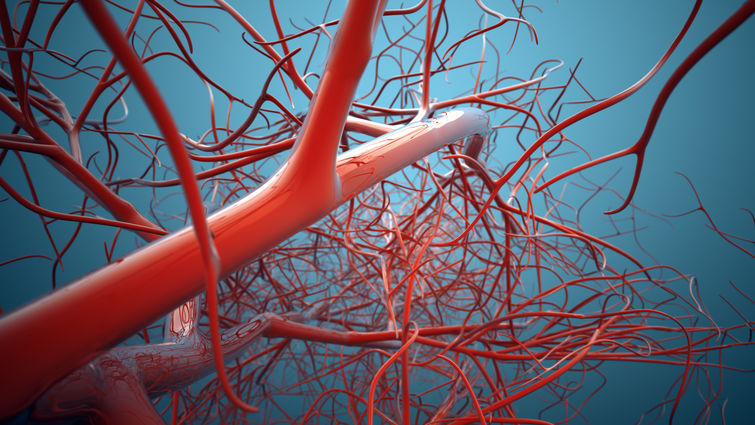
Physicians often hear patients mistake heart disease for cardiovascular disease (CVD). And it’s not the only myth most physicians hear when they try to talk to their patients about their cardiovascular health.
Loma Linda University International Heart Institute’s cardiovascular disease specialist, Kenneth R. Jutzy, MD, wants to first help patients define what CVD means. CVD involves abnormalities of either the heart or cardiovascular system.
In the arterial system, it can involve the narrowing or blocking of peripheral arteries or arteries that take blood to the legs. It can also include aortic aneurysm — an abnormal bulge that occurs in the wall of a major blood vessel; aorta dissection — a condition involving a tear in the large blood vessel branching off the heart; venous insufficiency — where the walls or valves in the leg veins are not working correctly; and lastly, the clotting of peripheral arteries.
Jutzy says not only has the definition of CVD been misunderstood, but there are four myths he often hears from patients. He says he hopes the truth will lead to greater cardiovascular health.
- Myth #1 – Cholesterol medication is bad. Often patients believe that the medication they are using to get their cholesterol under control can cause dementia and other side effects. However, Jutzy says that it has been found that patients who need these medications have found it safe and effective in helping to prevent further vascular disease.
- Myth #2 – Supplements are beneficial. Some patients believe supplements are helpful in preventing cardiovascular disease. In reality, Vitamin E and D and other supplements have not shown any long-term benefit of prevention.
- Myth #3 – Genetics do not play a role. Genetic correlation between the disease is one of the most common questions Jutzy receives. Physicians know that family history and genetics are important determinants in getting the disease. However, someone’s lifestyle can also play a role in delaying or stopping chances of getting the disease. Jutzy highly recommends quitting smoking, improving sedentary lifestyle and eating a healthy, balanced diet.
- Myth #4 – Blood pressure does not matter. Jutzy says he often finds his patients do not correlate uncontrolled high blood pressure with cardiovascular disease. Yet, blood pressure is one of the most significant factors when it comes to developing the disease.
Most importantly, Jutzy says there is so much in our own control when it comes to our cardiovascular health. He urges patients to lead a healthy and active lifestyle, know their blood pressure numbers and know their family history. Loma Linda University International Heart Institute is home to dozens of physicians who can partner with you to understand your cardiovascular health. To schedule an appointment, call 1-800-468-5432.
